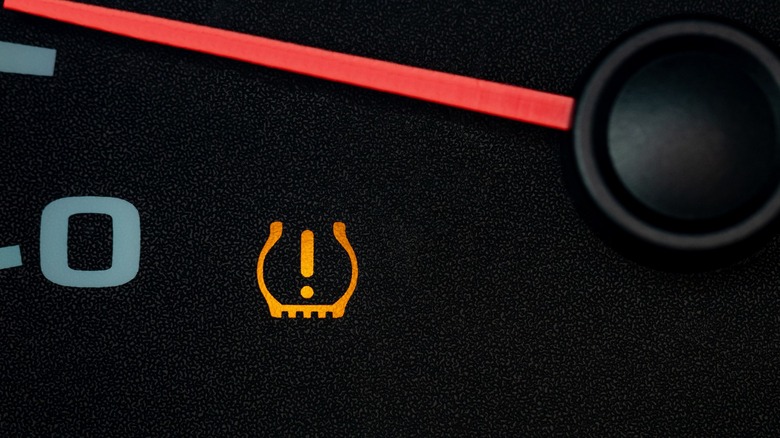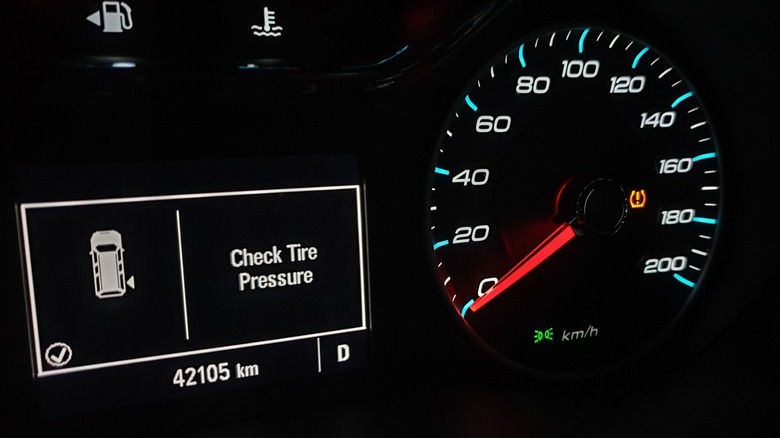Here's Why Your Car's Tire Pressure Light On Even Though The Tires Aren't Low
Driving a car comes with a great deal of responsibility, including maintenance that every driver needs to stay on top of. This can include things like making sure you never skip an oil change and checking your headlights to ensure they haven't blown. Additionally, drivers need to be aware of what the lights on the vehicle's dashboard mean, one of the 12 essential tips every car owner should know. One of those lights is the TPMS light, also known as the tire pressure monitoring system — it looks like an orange top-cut tire with an exclamation point in the middle.
When your TPMS light comes on, most of the time, all you need to do is check each tire's pressure to ensure you do not have one going completely flat. If it is, then change to your spare tire and get a replacement. However, sometimes the TPMS light will come on and stay on. What do you do then?
Don't fear the tire pressure light
If your tire pressure light is stuck on, don't fret too much. There's a chance that a temperature change outside is the culprit. When air cools, it takes up less volume, causing your tire pressure to decrease as well. All you need to do is top them up to the manufacturer's psi requirement. However, if your tires' psi are good, there's a chance that your TPMS sensors have gone bad. Note that if you have a newer vehicle that tells you the psi of each tire, you may be able to tell pretty quickly. Usually, instead of numbers, there will be blank spaces.
Direct TPMS sensors are attached to the inside of each wheel. They read tire pressure and sometimes temperature, too, depending on the model you own. When a tire drops 25% below the recommended PSI, the sensor will let the vehicle know, and the light will come on.
These sensors typically have a battery that lasts anywhere from six to ten years or 90K-120K miles. Unfortunately, these sensors' batteries are not replaceable, so the only way to fix a constant TPMS light is to replace all the sensors, especially since if one battery is dying, the rest will more than likely follow soon. According to Kelly Blue Book, the average cost to replace your TPMS sensors can run somewhere between $314 and $386. However, some places may sell them cheaper, based on your vehicle's make and model.

